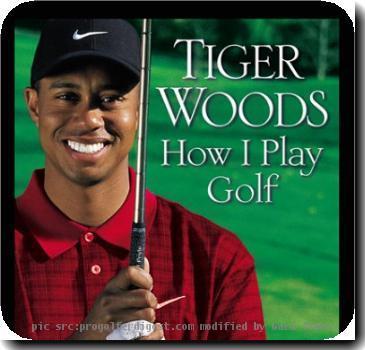How old is old enough? Crash death of 13-year-old motorcycle racer raises question
By Nancy Armour, APMonday, August 30, 2010
Are kids old enough to be playing adult games?
They sail solo around the world, climb the highest mountains and race around ovals at breakneck speeds.
They’re kids, some not old enough to get into an R-rated movie on their own.
On Sunday, a 13-year-old became the youngest person to die at the Indianapolis Motor Speedway when he fell off his motorcycle and was run over by a 12-year-old during a race, raising the question: How old is old enough when it comes to extreme sports?
“They’re not just small adults,” said Dr. Lyle Micheli, director of the division of sports medicine at Children’s Hospital of Boston and an adviser to the International Olympic Committee’s medical commission on youth sports. “Kids are different. Kids have to be protected by society.”
Peter Lenz fell off his motorcycle during a warm-up lap for the U.S. Grand Prix Racers Union event at the speedway. Then he was hit by 12-year-old Xavier Zayat.
Kids pushing boundaries is nothing new. Mozart was composing music when most children are still mastering their ABCs, and an 8-year-old’s paintings are fetching six figures in Britain. Tiger Woods first showed off his golf skills at the grand old age of 2.
But several child psychologists said there’s a big difference between academic or cultural prodigies — even phenoms in traditional sports — and kids who risk their lives.
In the last six months:
— 13-year-old Jordan Romero became the youngest climber to summit Mount Everest;
— 16-year-old Jessica Watson became the youngest person to sail around the globe solo, nonstop and unassisted;
— 14-year-old Laura Dekker from the Netherlands is currently at sea trying to top Watson’s record.
“A lot of teens, physically, are very much able to do similar things as adults because their body types have developed, and they’ve got the muscular strength,” said Dr. Robyn Silverman, a psychologist who specializes in child and teen development. “Where we go wrong with these teens is that they have problems with impulse control, stress management, abstract thinking.
“They really need to be able to understand the risks,” Silverman added. “It looks so cool and teens have this process in their heads: ‘It’s cool, let’s just do it.’ There’s not the, ‘Let’s step back and look at the pros and cons of the situation,’ as adults would.”
That goes beyond the physical risks, Silverman said. Lenz had been riding bikes for six years, winning nine national championships and nine regional titles. He appeared to be a rising star in a series that bills itself as a prep for riders 12 to 18 who hope to compete at a higher level. Photos of the crash show Lenz sitting on the track with his arms raised and then getting up, raising his arms so other riders could see him.
But one rider did not.
In some cases, parents can’t — or aren’t willing — to impose boundaries on their children, said Kiki Weingarten, an education and parenting coach.
“You have some parents who enjoy their children’s notoriety — good, bad or indifferent. You have the Lindsay Lohan moms, the ‘Toddlers and Tiaras’ moms,” Weingarten said.
Some parents are concerned their children won’t like them. “No, no, no, no. You don’t have to be their best friend. They don’t have to like you. You have to be an authority figure.
“Somebody,” Weingarten said, “has to be the authority figure.”
But kids, like adults, are different, and some are able to handle the physical, mental and emotional rigors of extreme or high-level sports. Four-time Cup champ Jeff Gordon was driving Quarter Midgets at age 5, and two-time Cup winner Tony Stewart raced go-karts at age 7. British diver Tom Daley was 15 when he won the world title in the 10-meter platform last summer.
Rather than imposing hard-and-fast age limits, each child should be considered individually, said Robert Epstein, former editor-in-chief of Psychology Today and author of “Teen 2.0: Saving Our Children and Families from the Torment of Adolescence.”
“Look directly at competence and maturity and then decide,” Epstein said. “In our society, we treat all young people as equally incompetent and irresponsible, and we don’t really nurture their confidence. So end up nurturing immaturity. … As long as you’re holding people back, holding them down, you don’t see what they can do.”
Marianne Sunderland understands the concern — and disapproval — over children taking on what seem to be very adult pursuits. She’s had the same reaction herself.
“I think of a 13-year-old climbing Mount Everest and I think, ‘Are you serious?’ But I don’t know mountain climbing,” Sunderland said.
She does, however, know her own two children, Zac and Abby, and what they did to prepare for their around-the-world sails. Zac Sunderland set the then-record for a solo sail around the world last summer at 17. Abby, at 16, failed earlier this year in her attempt to top her brother’s mark.
The Sunderland kids are experienced sailors. But when Abby Sunderland first talked of sailing around the world, her father tried to dissuade her by taking her out for long voyages in tough conditions. That, however, only fueled her passion for sailing, Marianne Sunderland said.
After making sure their children were emotionally ready for their voyages — including knowing that they could stop at any time — did the Sunderlands let them go.
“All I would say is that the parents should know their kid better than anybody,” Marianne Sunderland said. “I wouldn’t send Abby to climb Mount Everest next week. She’s not ready. You try to train them. Or give them the experiences they need. If they continue to have a passion for it, you have to be able to judge if they’re skilled enough or mature enough.”
AP Sports Writer Bernie Wilson and AP National Writer Martha Irvine contributed to this report.
Online:
www.drrobynsilverman.com/
Tags: Adult Recreational Sports Leagues, Aquatics, Diving, Men's Aquatics, Motorcycle Racing, Motorcycle Track Racing, Tiger Woods

